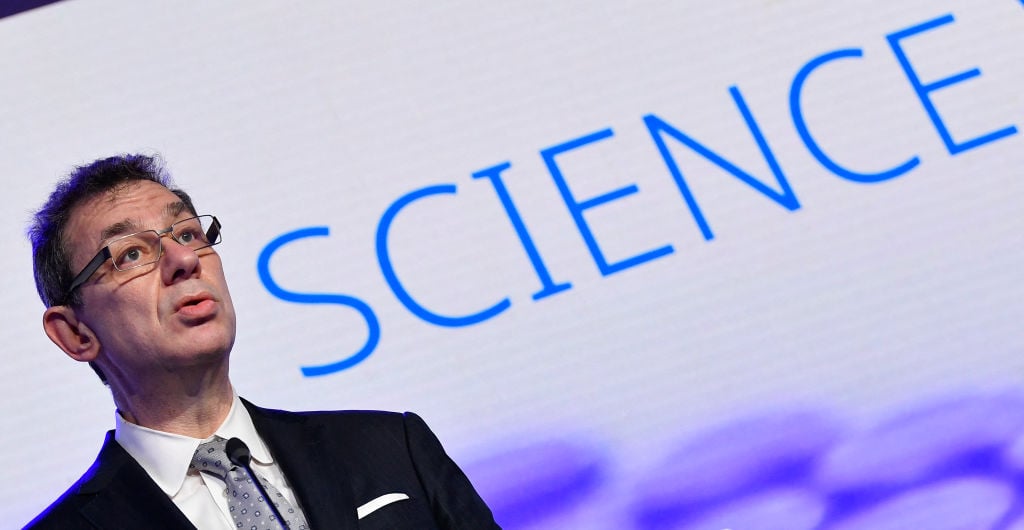After M&A stretch, Pfizer CEO says company needs 'breathing period' from large deals
11 Jun 2024
Acquisition

Preview
Source: FiercePharma
“I don’t foresee ourselves going and buying something sizeable now because I don’t want to disrupt our commercial operations, our research operations or our manufacturing operations,” Pfizer CEO Albert Bourla told investors this week.
Amid a recent biopharma M&A resurgence, one major player plans to stay out of the waters after making multiple recent splashes.
Though not for lack of business development capacity, Pfizer is currently taking a large dealmaking “breathing period,” CEO Albert Bourla told investors this week at Goldman Sachs’ 2024 annual Global Healthcare Conference in Miami.
After spending tens of billions of dollars on Arena Pharmaceuticals, Biohaven Pharma, Global Blood Therapeutics (GBT) and, most recently, Seagen, “[w]e need to catch our breath and make sure that we execute well on those [companies] that we have right now,” Bourla explained.
Speaking to some of those recent deals—which Pfizer struck thanks to its trove of COVID pandemic cash—the CEO added that Seagen’s integration into the company is going well and that Biohaven’s migraine med Nurtec ODT has the potential to “surprise us very positively going forward.”
“I don’t foresee ourselves going and buying something sizeable now because I don’t want to disrupt our commercial operations, our research operations or our manufacturing operations,” Bourla said.
The large M&A pause comes at a crucial time for Pfizer, which said in December that it expects to bring home revenues between $58.5 billion and $61.5 billion this year. That target fell short of analyst consensus of $63.2 billion, with the projected gap largely attributable to plunging demand for the company’s COVID-19 products Comirnaty and Paxlovid.
Still, Pfizer’s COVID fortune has helped the company chart a number of high-profile buyouts in recent years, starting with its $6.7 billion deal for immune-inflammatory biotech Arena in December of 2021. The following year, Pfizer acquired much of its migraine partner Biohaven and sickle cell disease-focused GBT for $11.6 billion and $5.4 billion, respectively.
That said—in a move familiar to those who track large pharma buyouts—Pfizer has already put the kibosh on a planned Seagen factory, putting more than 100 jobs on the line. In March, the company said it was shutting down construction on a 270,000-square-foot manufacturing plant being built by Seagen in Everett, Washington, some 13 miles north of the Seattle-based company’s current headquarters.
Still, Pfizer remains “highly committed to the Seattle side” of Seagen and plans to “develop it even further,” Bourla said during Goldman Sachs’ event.
Meanwhile, Pfizer's companywide savings drive went largely undiscussed during the Goldman Sachs conference. After the company spent tens of billions of dollars on M&A in recent years, it's now working to rein in costs through a pair of cost-cutting initiatives.
In one campaign, revealed last year, Pfizer aims to achieve $4 billion in savings by the end of 2024. In another, rolled out last month, the company is working to realize $1.5 billion in savings by 2027.
Pfizer's downsizing efforts have affected its operations in many places, including in Connecticut, New Jersey, Michigan, California, the U.K., Ireland and beyond.
Bourla made his comments this week after heralding 2024 as a “year of execution” earlier this year at the J.P. Morgan Healthcare Conference. At the time, the CEO mentioned that Pfizer this year will “try to consolidate what we already acquired,” noting that the company would stay away from another big acquisition.
Pfizer isn’t the only Big Pharma company taking a break from major business development deals, as AstraZeneca looks to slow its roll on technology platform deals in the coming months.
“I think we have acquired and built most of what we need for now and we need to execute on what we’ve got,” AZ CEO Pascal Soriot said on a recent earnings call. “But it doesn’t mean, of course, BD will come down to zero.”
For more details,please visit the original website
The content of the article does not represent any opinions of Synapse and its affiliated companies. If there is any copyright infringement or error, please contact us, and we will deal with it within 24 hours.
Organizations
Indications
Targets
-Hot reports
Get started for free today!
Accelerate Strategic R&D decision making with Synapse, PatSnap’s AI-powered Connected Innovation Intelligence Platform Built for Life Sciences Professionals.
Start your data trial now!
Synapse data is also accessible to external entities via APIs or data packages. Leverages most recent intelligence information, enabling fullest potential.





